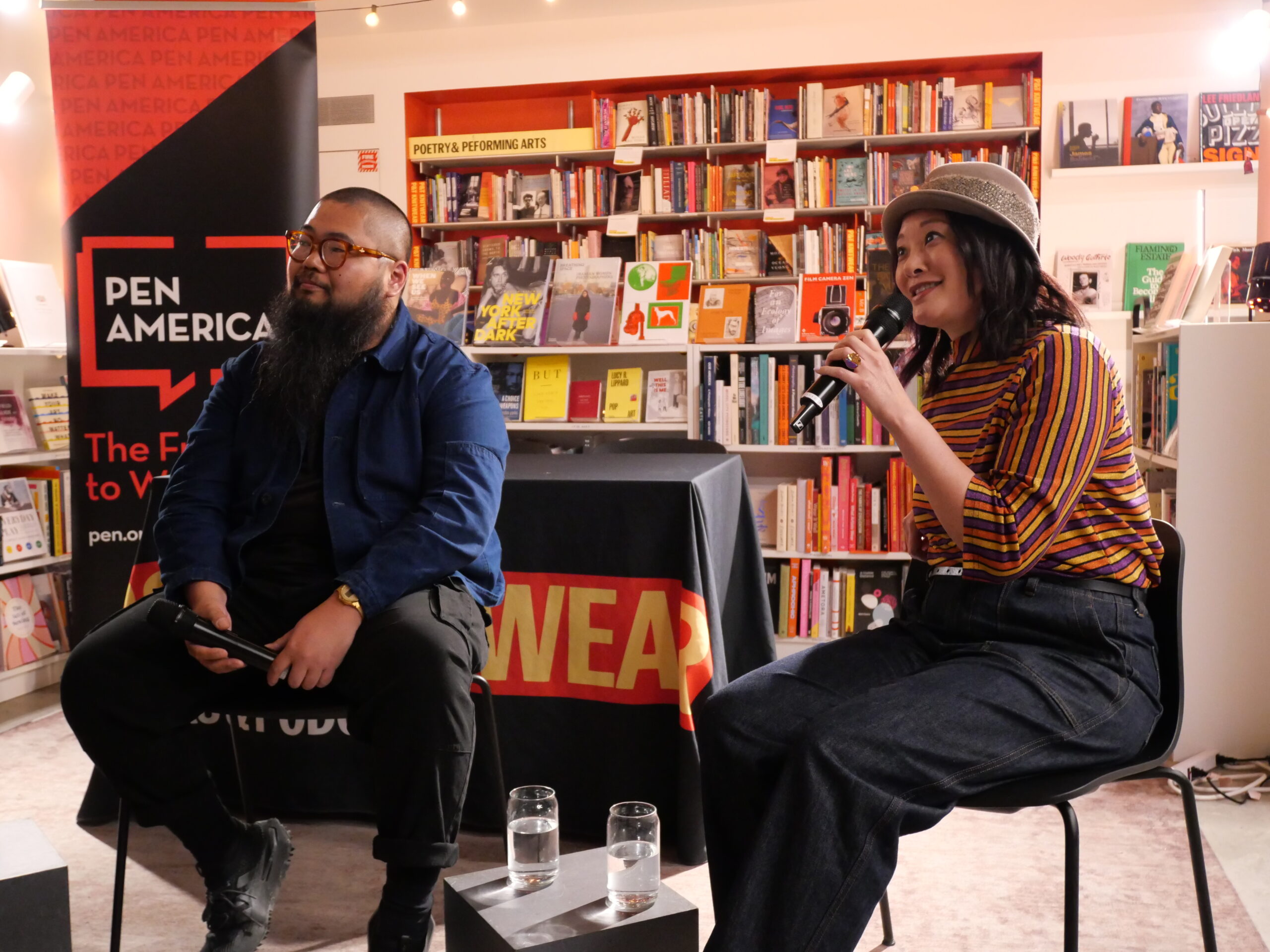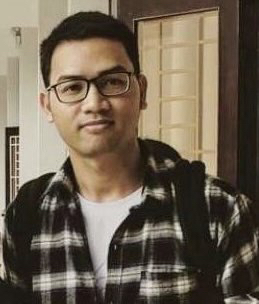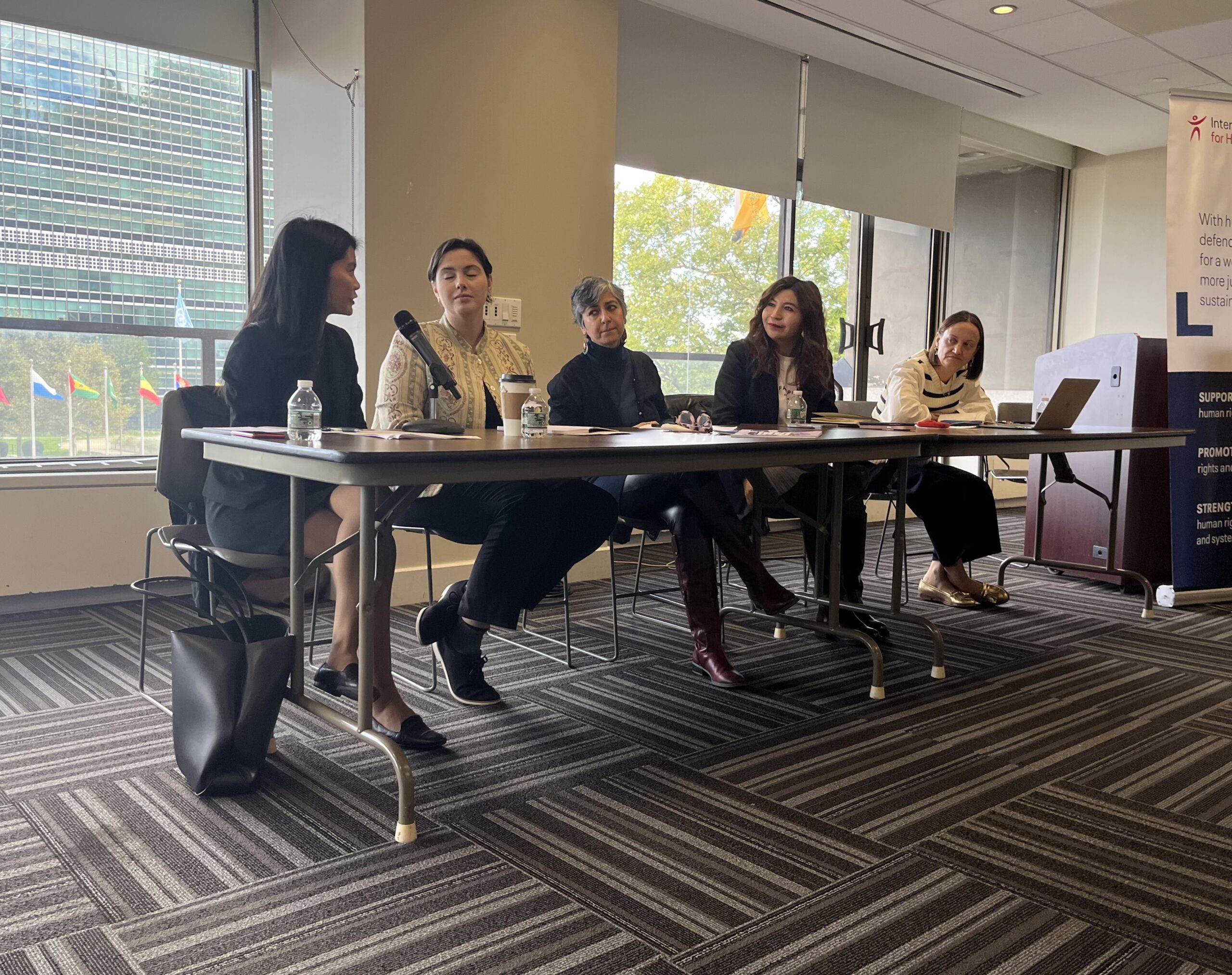Shin Daewe is one of 11 imprisoned writers with ties to outlets defunded by the current administration.
Shin Daewe’s documentaries took her to some of Myanmar’s most remarkable and most devastated areas. In her pursuit for the truth, she could be seen walking through farmland destroyed by mining, and standing on top of the only part of a village not covered in flood waters.
With Myanmar still reeling from a devastating earthquake, the fact the dedicated environmental filmmaker and screenwriter is sitting in a cell in the infamous Insein prison in Yangon – unable to cover the impact of the disaster – is emblematic of the junta’s grip on free expression in the country.
Shin Daewe was arrested in 2023 for having a drone, which she had bought to shoot some aerial footage for a new documentary. She was initially sentenced to life in prison on terrorism charges, and her husband, Ko Oo, reported that when she was transferred to the prison it looked like she had been tortured. Earlier this year, her sentence was reduced to 15 years as part of a larger prisoner amnesty marking the country’s independence day. Another amnesty – for the traditional New Year – is starting on April 13, and this time Myanmar’s junta should free Shin Daewe and drop all charges against her.
She is one of two journalists imprisoned in Myanmar who have ties to news outlets funded by the now slashed US Agency for Global Media (USAGM). Up until an executive order signed by Donald Trump last month, USAGM funded several decades-old news outlets including Middle East Broadcasting Networks, Voice of America, Radio Free Europe/Radio Liberty, and Radio Free Asia – where Shin Daewe contributed reporting on environmental and human rights issues.
These outlets were serving as a critical platform for free expression and crucial sources of news and information. With the stroke of a pen, the US president has all but wiped the outlets out, and endangered the journalists and other writers working for them under some of the world’s most authoritarian regimes.
Now, Shin Daewe and at least 10 other imprisoned journalists around the world who have ties to the struggling or shuttered outlets are left abandoned, without institutional support during the fight for their freedom. In addition to Myanmar, PEN America is aware of USAGM-funded staffers in prison in Vietnam, and in Russian-occupied Crimea.
It is not only imprisoned writers left vulnerable by the shuttering of these outlets, which have been a consistent voice in the fight against tyranny since World War 2. Some writers reported on politically sensitive or dangerous stories happening in their home countries while based in the United States, where they had fled for fear of their safety. Now, they face visa issues and deportation back to their country of origin where they risk suffering extreme consequences for their bravery.
Some countries and territories where journalists are particularly at risk include: Belarus, Cambodia, China, Hong Kong, Kazakhstan, Russia, and Vietnam. PEN America is currently aware of at least fifteen journalists from Radio Free Asia and eight from Voice of America facing serious risk of being immediately arrested upon arrival into their home country, while another 84 from both media outlets are at risk of surveillance, harassment, or other threats.
These writers risked everything to defy authoritarianism and keep the public informed. The least we can do now is keep them safe in the face of a seemingly global onslaught against free expression and press freedom. PEN America, alongside nearly 40 human rights organizations, urged Congress to take immediate action to protect these journalists in a joint letter earlier this month.
The imprisonment of Shin Daewe was a major miscarriage of justice that should never have happened, and her freedom will not be the end of the struggle for these writers and journalists abandoned by the U.S. government, but it could be the start we need.





